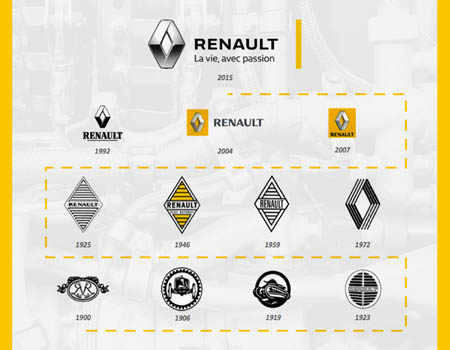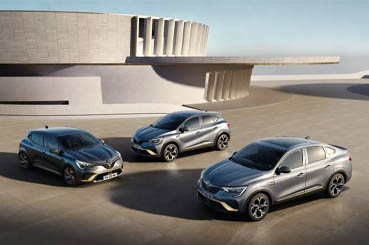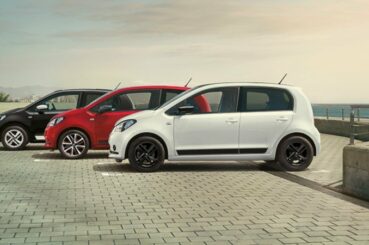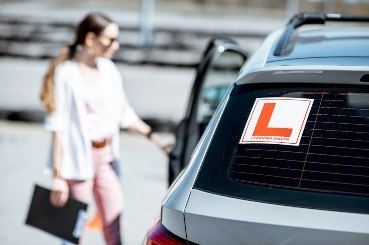Renault, a renowned name in the automotive industry, stands as a global force in vehicle manufacturing, with a presence in 128 countries. Let’s delve into some fascinating aspects of this automotive giant.
Established on the 24th of December in 1898 by Louis Renault and his brothers Marcel and Fernand, this French automaker has carved its path through the years, leaving an indelible mark on the global automotive landscape. Renault holds a rich legacy of over a century in the automotive industry. As of 2023, the brand will celebrate its remarkable 125th anniversary, marking an enduring journey characterised by innovation, engineering excellence, and a commitment to shaping the automotive landscape.
This milestone stands as a testament to Renault’s enduring presence and ongoing dedication to creating cars that resonate with drivers worldwide.

Where are Renault Cars Made?
Renault Group’s global footprint spans over 127 countries, with manufacturing facilities, Research and Development centres, and sales networks strategically positioned across continents, reflecting a commitment to a widespread international presence and sustainability.
- Manufacturing Facilities: It operates manufacturing sites across the globe, producing vehicles, engines, and components.
- European Focus: A significant number of facilities are located in Europe, with numerous production plants in France, Spain, Romania, and more.
- Asia-Pacific: Presence in countries like China, South Korea, and India, indicating a strong foothold in the Asian market.
- Americas: Manufacturing sites in countries such as Brazil and Argentina, expanding their reach in the Americas.
- African Operations: Renault has facilities in Morocco and Algeria, contributing to its African presence.
- Research & Development Centres: The company has R&D centres in Europe and Asia, emphasising innovation and technological advancements.
- Sales and Distribution Networks: Presence not only in manufacturing but also in sales and distribution across different continents.
- Sustainable Practices: The company’s commitment to sustainability is evident in its global operations, focusing on eco-friendly manufacturing and processes.
- Employment Opportunities: The diverse locations represent potential employment opportunities across the globe.
What Car Brands Does Renault Own?
Benefiting from its robust alliance with Nissan and Mitsubishi Motors, Renault Group stands fortified, leveraging its distinct proficiency in electrification.
The group encompasses four distinct brands – Renault, Dacia, Alpine, and Mobilize – each complementing the other, collectively dedicated to delivering sustainable and pioneering mobility solutions to its diverse customer base.
Renault Group’s strategic focus revolves around providing innovative and eco-friendly transportation options, catering to the evolving needs of modern consumers and contributing to a greener future in the automotive industry.
Renault’s collaboration with Nissan and strategic alliances has catapulted it to the ranks of the fourth-largest car manufacturer globally.

Who owns Renault?
The company is owned by the French state and Nissan, each holding a 15% share. Renault Trucks, previously called Renault Véhicules Industriels, has been under Volvo’s ownership since 2001.
Meanwhile, Renault Agriculture was fully acquired by the German agricultural equipment manufacturer CLAAS in 2008.
Nationality and Pronunciation
Is Renault French or German?
Renault is a French automotive company, a pride of the nation’s engineering prowess.
How is Renault pronounced?
The brand is pronounced as “reh-noh.”
What does the Renault logo mean?

The Renault logo, a distinctive diamond-shaped emblem, holds significant symbolism. It represents the company’s rich heritage, embodying its innovative spirit and forward-thinking approach.
The diamond shape signifies robustness, quality, and longevity, reflecting the brand’s commitment to enduring excellence in the automotive industry.
Moreover, the yellow and black colours within the logo are reminiscent of the brand’s roots in France and its industrial prowess, symbolising energy, creativity, and a vision for the future.
Overall, the Renault logo encapsulates the company’s history, strength, and aspirations for continuous advancement in the global automotive landscape.
Are Renault cars reliable?
Renault cars have shown a good track record in terms of reliability, varying across different models and years. While some Renault vehicles have demonstrated good reliability and received positive reviews for their performance, design, and features, others have faced issues related to electrical systems, engine problems, or minor build quality concerns.
Over the years, Renault has made strides in improving reliability by enhancing manufacturing processes and implementing quality control measures. The reliability of Renault cars often depends on factors like regular maintenance, driving habits, and adherence to service schedules.
As with any car manufacturer, consumer experiences can vary, and it’s advisable to consider individual model reviews and reliability ratings when considering a Renault purchase.
Is Renault a good brand of car?
Renault offers a diverse range of vehicles suitable for different needs. While the brand has strengths, prospective buyers may want to research specific models and consider individual reviews for a more informed decision.
Is Renault a good car to buy?
Several Renault models have garnered acclaim, including the practical and economical Renault Clio, and the versatile Captur. The high-performance Alpine A110 caters to enthusiasts seeking an exhilarating driving experience.
Visit a Renault Dealership
To explore Renault’s lineup or schedule a test drive, locate the nearest Stoneacre Renault dealer in your area for a firsthand experience of the vehicles and services.
Renault stands as a dynamic force in the automotive world, combining innovation, diversity, and a rich history, appealing to a wide spectrum of drivers globally.




